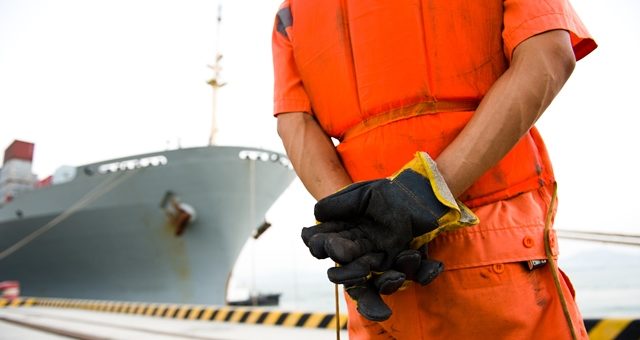The Britannia P&I Club has issued its June edition of “Risk Watch”, in which includes an article about how to preventive measures and reduce the risk of finger injuries.
As explained, working at sea is a demanding and challenging profession that requires constant attention to safety. One aspect often overlooked is the prevalence of finger injuries among seafarers. In the confined and dynamic environment of a ship, fingers are susceptible to various hazards, ranging from heavy machinery accidents to repetitive strain injuries.
Several factors contribute to this high rate of finger injuries on board ships.
- MACHINERY: One of the primary culprits behind finger injuries on ships is the operation of heavy machinery. From winches and cranes to conveyor belts and hydraulic systems, seafarers regularly work with powerful equipment exposing fingers to crushing, jamming, and amputation risks.
- REPETITIVE STRAIN INJURIES (RSI): While not as immediately evident as traumatic injuries, RSI can be a concern among seafarers. Tasks that involve
continuous and repetitive motions, such as manual labour or prolonged use of hand tools, can lead to conditions like tendonitis or carpal tunnel syndrome. Adequate rest breaks, ergonomic designs for workspaces, and regular health check-ups are essential to address and prevent RSI. - SHARP TOOLS AND ROUGH SURFACES: From maintenance tasks to everyday activities, sharp tools and abrasive surfaces can cause cuts and
punctures. - LINE HANDLING: Handling ropes and lines is an inherent part of maritime operations, but it also poses a significant risk of finger injuries. Sudden tension release, improper coiling, or the mishandling of lines can lead to rope burns, finger entrapment or even traumatic amputations. Training and the use of appropriate Personal Protective Equipment (PPE) can significantly reduce the occurrence of such incidents.
- FATIGUE AND STRESS: Seafarers work long hours, completing demanding tasks in harsh environments which can lead to fatigue and reduced attentiveness, increasing the likelihood of accidents.
According to data provided by Britannia P&I, finger injuries comprised 19% of all injuries recorded over the past four years, with engineers experiencing the highest number of injuries, followed by able seamen. Additionally, finger-related accidents accounted for approximately 11.6% of the total costs associated with injuries. These injuries not only cause pain for the seafarer but also incur significant costs for shipowners and operators. Medical treatment can range from basic first aid to complex surgeries, costing companies and medical insurers dearly. Injuries can also mean crew members are unable to work, causing financial losses for the crew and manpower shortages on board. Compensation claims for serious injuries can also be a substantial cost.
Preventive measures can significantly prevent and reduce the risk of finger injuries:
Comprehensive training: Ensuring the safety of maritime workers begins with comprehensive training courses that cover the proper use of equipment, emergency response procedures and the importance of adhering to safety guidelines. Familiarity with the potential risks and the implementation of
preventive measures can significantly reduce the likelihood of finger injuries.
Personal protective equipment (PPE): Equipping seafarers with appropriate PPE is a fundamental aspect of injury prevention. Investing in gloves with reinforced materials, designed specifically for maritime activities, can provide an additional layer of protection against injuries. Regular inspection and
replacement of worn-out PPE are crucial to maintaining their effectiveness.
Promoting safety culture: Fostering a safety-conscious culture on board ships is paramount in preventing accidents. Open communication channels, regular safety meetings, and encouraging reporting of near-miss incidents create an environment where seafarers feel empowered to address safety concerns. By prioritising safety, both individuals and organisations contribute to reducing the risk of finger injuries.
Maintaining equipment: Maintaining equipment on board ships is paramount for preventing finger injuries. By consistently inspecting and up-keeping tools and machinery, the risk of mechanical failures is minimised, ensuring a safer working environment for the maritime crew. Regular assessments identify potential issues, allowing for timely interventions and reducing the likelihood of accidents stemming from equipment-related failures. In the dynamic and challenging environment of maritime work, finger injuries are an unfortunate but a preventable reality.
By addressing the root causes, implementing preventive measures, and fostering a culture of safety, the maritime industry can significantly reduce the occurrence of finger injuries on board ships. Ensuring the wellbeing of seafarers not only benefits individuals but also contributes to the overall efficiency and safety of maritime operations worldwide.






























































